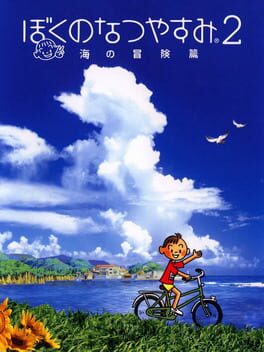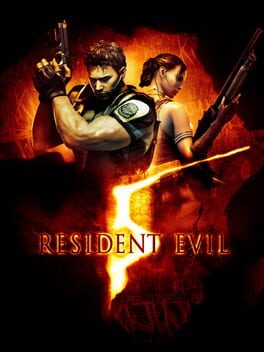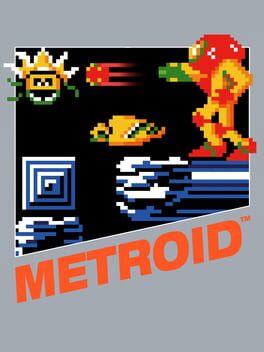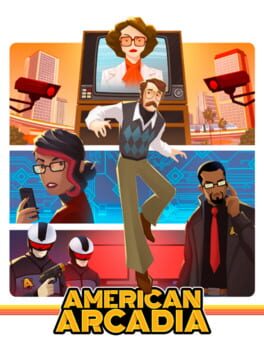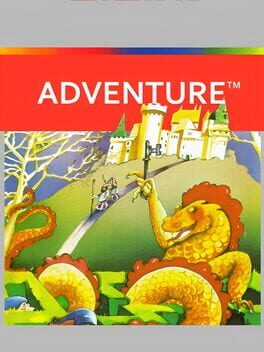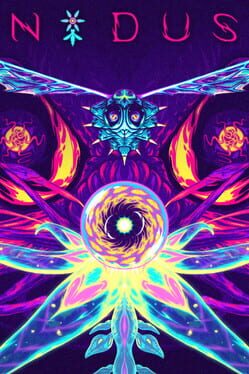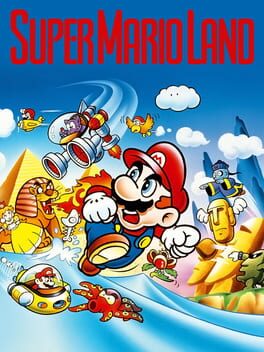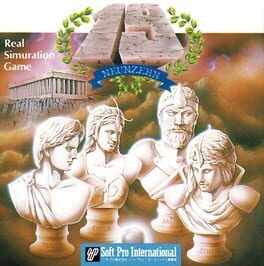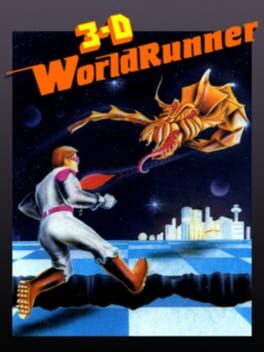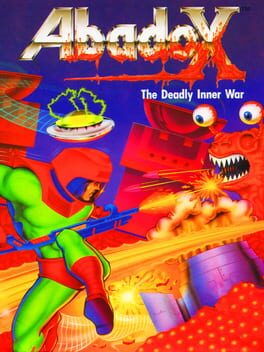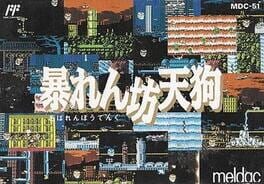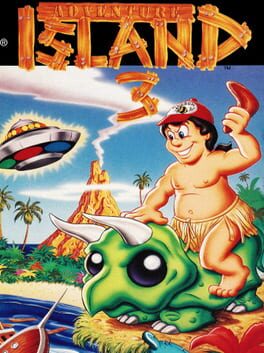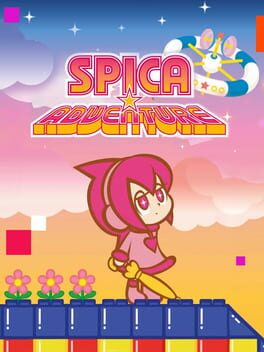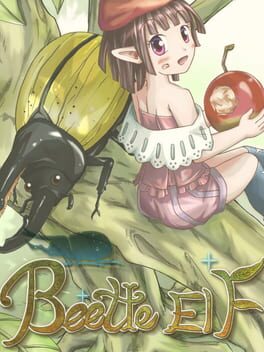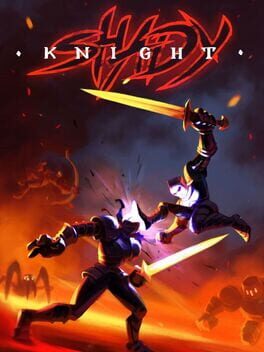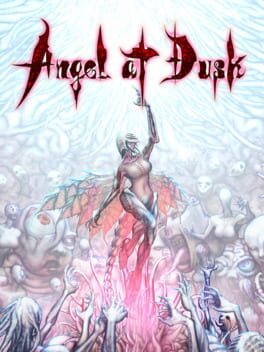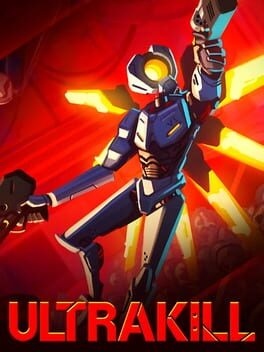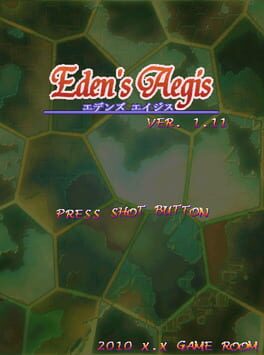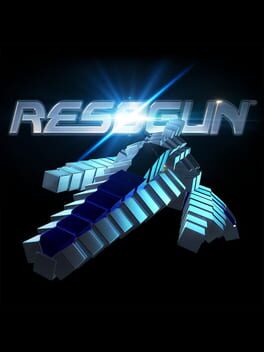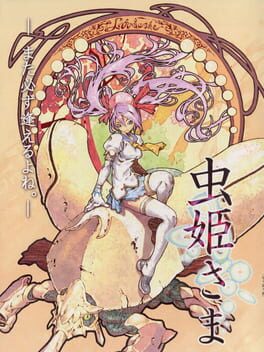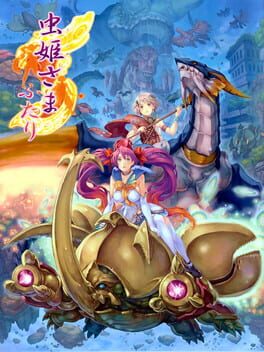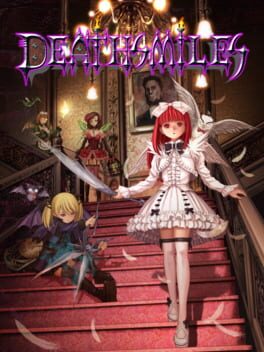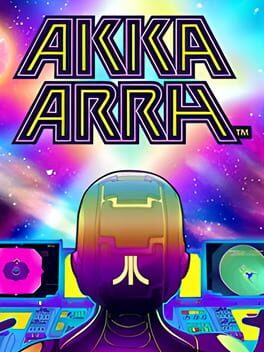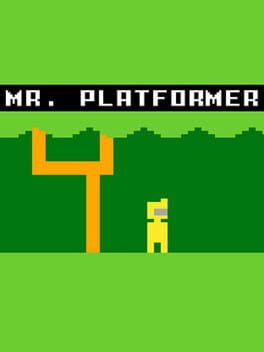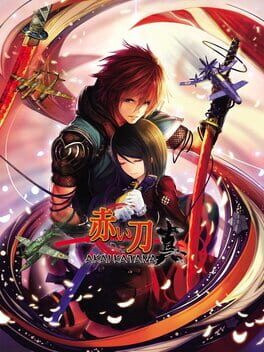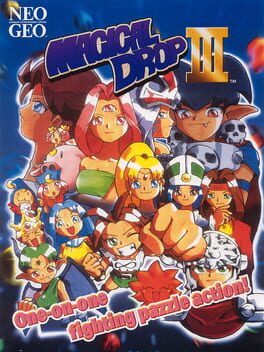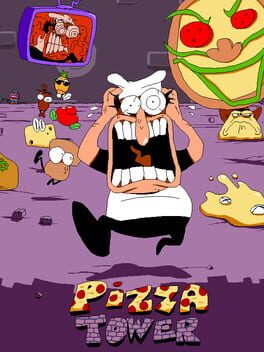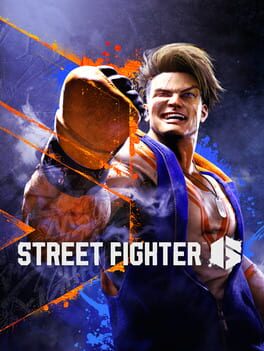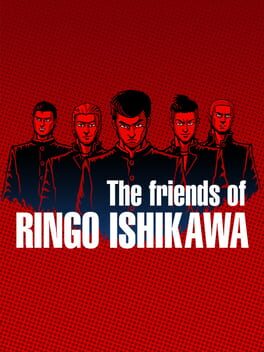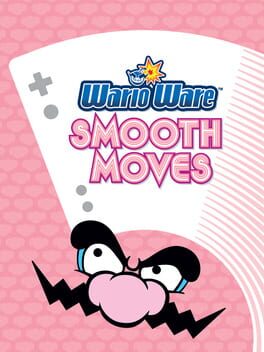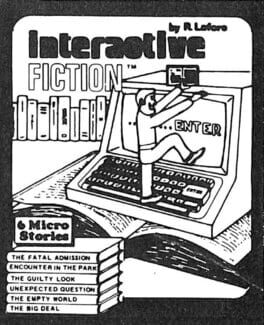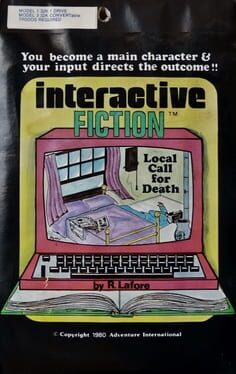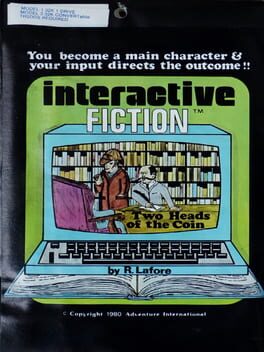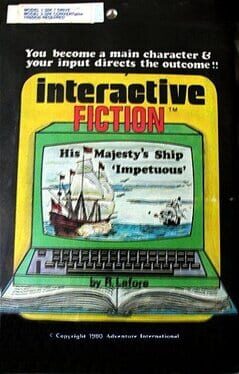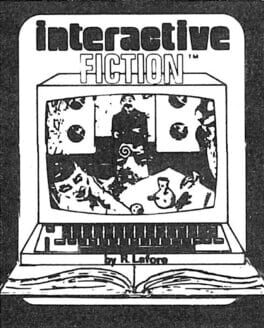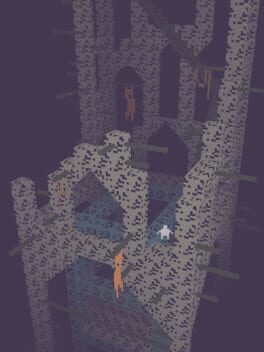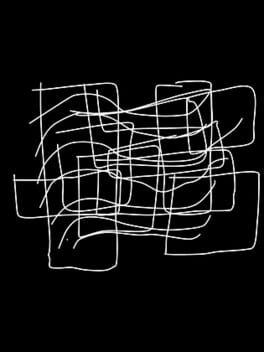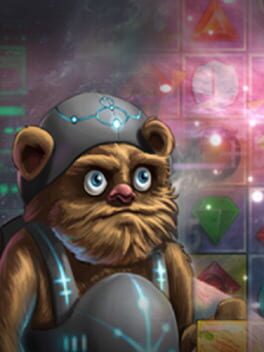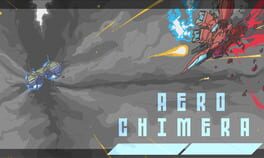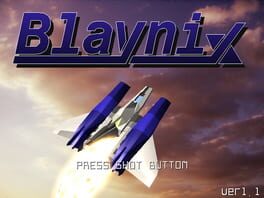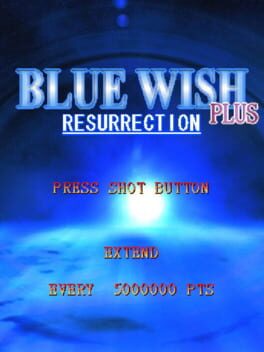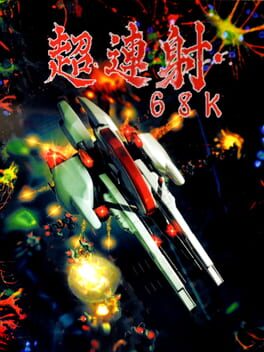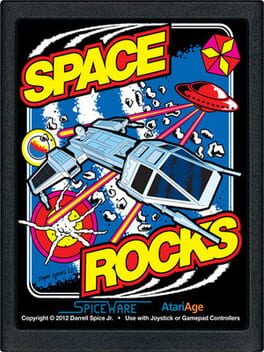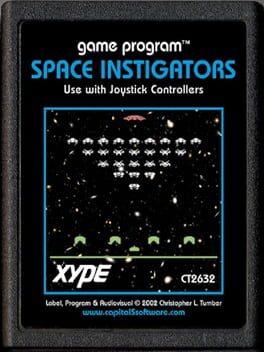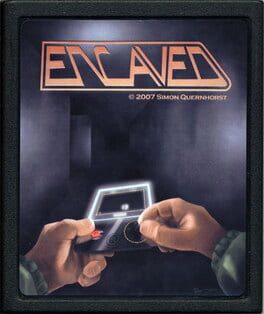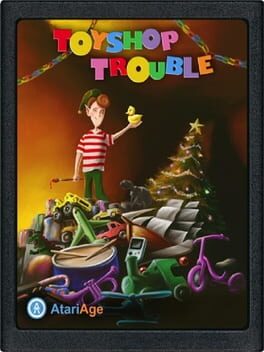220 reviews liked by Ira
To be honest, I didn't exactly come in with my arms wide open. The fears of a formally continuist sequel of something that was very expressive because its own peculiar use of its forms increased shortly after starting. A setting to choose how long you want the day to be, collectibles around the map, a character that tells you where to see the events of each day, afraid of giving you back freedom in a larger world, overall details that seem treated with less care and a feeling of experiencing the same but worse. It's a shame that every time the game tries to awkwardly recall the intentions of its predecessor, it pales considerably (one clear instance: the previously essential narrator is now dispensable in the few arbitrary moments it appears).
Luckily, it takes just a few days to see that the direction taken is right. The facts that the protagonist's father never appears, that the plot of the future sibling remains in the background, or that the reminiscing aspect of the tale is anecdotic are no coincidence. The form, weighed down by losing part of its meaning, becomes a perfect vehicle to explore a more passive exploration of the surrounding drama.
Here Boku does not so much embody a reflexive portrait of childhood and growth, as he is more a supporting device for the rest of the cast. Accordingly, the most dramatically charged plots revolve less around Boku's family and more around the neighbors and visitors. These take advantage of the kid's innocent and outsider approach to deal with a common yet always specific issue: yearn. Yearn because of the distance between mother and daughter, between father and son, between lovers, between Earth and outer space, between past and present and future, between the world of humans and the one that is not ours, between life and what lies beyond. And the fears that all of these yearnings may never be answered.
That most of the conflicts end up in an open ended bittersweet quiet note resonates with the setting of the small coastal village. A place to get away from and to be taken away from the world. The ever-present sound of the waves, which inevitably move these desires in the tide just as the moon changes phase in the last shot of each day.
It’s not that Boku's appearance solves all these yearnings, but his mere interest in observing the world around him and serving as a confessional escape mechanism at least alleviates the pain. The game takes a passive stance where listening to one another is the greatest act of kindness, where what little evil appears to exist in the world has nothing but a noble and melancholic origin. Who knows what the future may hold, what to do but to hope for the best and reach for our hands within the tide.
Luckily, it takes just a few days to see that the direction taken is right. The facts that the protagonist's father never appears, that the plot of the future sibling remains in the background, or that the reminiscing aspect of the tale is anecdotic are no coincidence. The form, weighed down by losing part of its meaning, becomes a perfect vehicle to explore a more passive exploration of the surrounding drama.
Here Boku does not so much embody a reflexive portrait of childhood and growth, as he is more a supporting device for the rest of the cast. Accordingly, the most dramatically charged plots revolve less around Boku's family and more around the neighbors and visitors. These take advantage of the kid's innocent and outsider approach to deal with a common yet always specific issue: yearn. Yearn because of the distance between mother and daughter, between father and son, between lovers, between Earth and outer space, between past and present and future, between the world of humans and the one that is not ours, between life and what lies beyond. And the fears that all of these yearnings may never be answered.
That most of the conflicts end up in an open ended bittersweet quiet note resonates with the setting of the small coastal village. A place to get away from and to be taken away from the world. The ever-present sound of the waves, which inevitably move these desires in the tide just as the moon changes phase in the last shot of each day.
It’s not that Boku's appearance solves all these yearnings, but his mere interest in observing the world around him and serving as a confessional escape mechanism at least alleviates the pain. The game takes a passive stance where listening to one another is the greatest act of kindness, where what little evil appears to exist in the world has nothing but a noble and melancholic origin. Who knows what the future may hold, what to do but to hope for the best and reach for our hands within the tide.
Rain World
2017
No greater indictment of the gaming press than the scorn for one of the most innovative games to come out since Demon's Souls. It's a game all about intrinsic reward as really most platformers are but in something like Super Metroid there is a reward in the way of powerups, the reward in Rain World is simply living to the next area and seeing what practical joke will be played on you.
I haven't seen a game that showed this much restraint since Ico. The game could've given you upgrades, a final boss, a significant crutch, a more present story, really anything your usual metroidvania would do but it didnt. The few concessions to minimalism like the map and the titles of the areas being shown never dampened the extreme immersive quality this game granted me.
Despite being quite game-y, this game probably bridges the cold reality of the world to the player in the best way possible, not simply because the game is "unfairly designed" but because it does actually feel like a real breathing ecosystem, the scavengers or lizards arent just obstacles for the player to engage in, they act like how animals would in real life, they go on living their life independent of the protagonists existence.
Very sad that in the mid 2010s indie game hype wave, this genius title comparatively got left out. I had only learned about this game in 2019 from Matthewmatosis and put it on the backburner till now.
I haven't seen a game that showed this much restraint since Ico. The game could've given you upgrades, a final boss, a significant crutch, a more present story, really anything your usual metroidvania would do but it didnt. The few concessions to minimalism like the map and the titles of the areas being shown never dampened the extreme immersive quality this game granted me.
Despite being quite game-y, this game probably bridges the cold reality of the world to the player in the best way possible, not simply because the game is "unfairly designed" but because it does actually feel like a real breathing ecosystem, the scavengers or lizards arent just obstacles for the player to engage in, they act like how animals would in real life, they go on living their life independent of the protagonists existence.
Very sad that in the mid 2010s indie game hype wave, this genius title comparatively got left out. I had only learned about this game in 2019 from Matthewmatosis and put it on the backburner till now.
Resident Evil 5
2009
Normally, thinking about a sequel to Resident Evil 4 is thinking it to be as simple as copying the system again and being done, how could a bad game come out of there? Even better, smooth the system to focus on combat: more melee options and dynamic inventory management limited on what's important without stopping the action.
Turns out that it was also important to know how to design and place enemies and scenarios, to be put against the ropes depended not only on the system but in always feeling surrounded and having to reposition constantly. Because of this, Resident Evil 5 starts by looking at some of the best ideas of 4, the moment inspired by the first raid at the village appears shortly in an open survival arena where enemies will keep appearing. Obviously, it's a highlight, nothing more is needed to feel constantly cornered.
The way is lost at every other moment. Whether it's trying to take advantage of splitting up and covering your backs in co-op, fighting in a cramped incinerator against a monster almost immune to gunfire, or navigating the dark of the mines, the game doesn't come even close to the tension of its predecessor. On top of that, the slapstick tone is much more blurred, seeming almost accidental, as in the possibility to melee combo some enemies together with your partner. Casual exceptions aside, the hits have lost impact and the cinematography style, there is an identity crisis due to a mishmash of trends of the period between military shooter, giant aliens from Gears of War and Matrix scenes that do not fit at all with what Resident Evil 4 was. It seems that it wasn't as simple as replicating a system and hoping that everything else could hold up.
It's no surprise then that the best part is the mercenaries mode. If Resident Evil 5 looks at the village raid to build its best moment right out of the gate, it can also look at the mercenaries mode derived from that sequence. Here disappears the clumsiness of trying to confusingly replicate without understanding and without genius. It goes the roughest way, to survive enemy waves in the system that could not fail, even with the Frankenstein erratic mashups still well in sight.
Turns out that it was also important to know how to design and place enemies and scenarios, to be put against the ropes depended not only on the system but in always feeling surrounded and having to reposition constantly. Because of this, Resident Evil 5 starts by looking at some of the best ideas of 4, the moment inspired by the first raid at the village appears shortly in an open survival arena where enemies will keep appearing. Obviously, it's a highlight, nothing more is needed to feel constantly cornered.
The way is lost at every other moment. Whether it's trying to take advantage of splitting up and covering your backs in co-op, fighting in a cramped incinerator against a monster almost immune to gunfire, or navigating the dark of the mines, the game doesn't come even close to the tension of its predecessor. On top of that, the slapstick tone is much more blurred, seeming almost accidental, as in the possibility to melee combo some enemies together with your partner. Casual exceptions aside, the hits have lost impact and the cinematography style, there is an identity crisis due to a mishmash of trends of the period between military shooter, giant aliens from Gears of War and Matrix scenes that do not fit at all with what Resident Evil 4 was. It seems that it wasn't as simple as replicating a system and hoping that everything else could hold up.
It's no surprise then that the best part is the mercenaries mode. If Resident Evil 5 looks at the village raid to build its best moment right out of the gate, it can also look at the mercenaries mode derived from that sequence. Here disappears the clumsiness of trying to confusingly replicate without understanding and without genius. It goes the roughest way, to survive enemy waves in the system that could not fail, even with the Frankenstein erratic mashups still well in sight.
Metroid
1986
The online discourse for this game is baffling. If I'd listened to the current consensus, then I would have avoided all but a handful of NES games, because they're apparently unfun, dated junk.
I decided to give the original Metroid a shot anyway, and I'm floored. This game is spectacular. Some of the music tracks are among the best I've ever heard. The atmosphere is as thick as butter. The world is enormous and labyrinthian. I felt a sense of vertigo uncovering side passage after side passage in areas I'd previously explored, realizing the map was at least double the size than I'd previously thought.
People are playing this game wrong. Don't use a guide, just read the manual. Be frustrated, and learn the game. This isn't a walk in the park. This is an expedition to a hostile alien fortress.
I decided to give the original Metroid a shot anyway, and I'm floored. This game is spectacular. Some of the music tracks are among the best I've ever heard. The atmosphere is as thick as butter. The world is enormous and labyrinthian. I felt a sense of vertigo uncovering side passage after side passage in areas I'd previously explored, realizing the map was at least double the size than I'd previously thought.
People are playing this game wrong. Don't use a guide, just read the manual. Be frustrated, and learn the game. This isn't a walk in the park. This is an expedition to a hostile alien fortress.
American Arcadia
2023
Al final de un juego que tiene plataformas de mentira, sigilo de mentira, puzzles de mentira, una trama distópica haciendo críticas de mentira sobre nada, se revela lo obvio. El juego no tiene ni una pizca de esperanza de que las cosas puedan ir a mejor o de que los seres humanos se comporten como tal, y en los créditos se asegura de mostrar que todo intento de su (pobre y falsa) idea de revolución es devorado por el mercado.
Esto se debe a que es un juego devorado por el mercado, por la tendencia, por la mentira, por hacer porque sí, por ser rentable, porque no cree que los humanos tengan nada que hacer por gusto, porque cree que cualquiera se vende o como poco se acaba engatusando por el mal. En esta secuencia de créditos con tono burlón y desesperanzador, el punto de miseria más alto es uno inesperado y accidental. Entre los mensajes de agradecimiento de los desarrolladores, por lo general nada fuera de lo normal, uno de ellos dedica unas palabras muy sentidas a su madre fallecida recientemente. Después de tantas horas de falsedad choca ver un acto tan escondido y tan humano de la nada, que tarda poco en desaparecer de pantalla mientras una versión ensalzada de ironía de la canción recurrente principal sigue sonando, mientras las imágenes de fondo y la escena post créditos se suceden perpetuando que el ser humano no importa y que no tiene capacidad de empatía ni de amor.
Esto se debe a que es un juego devorado por el mercado, por la tendencia, por la mentira, por hacer porque sí, por ser rentable, porque no cree que los humanos tengan nada que hacer por gusto, porque cree que cualquiera se vende o como poco se acaba engatusando por el mal. En esta secuencia de créditos con tono burlón y desesperanzador, el punto de miseria más alto es uno inesperado y accidental. Entre los mensajes de agradecimiento de los desarrolladores, por lo general nada fuera de lo normal, uno de ellos dedica unas palabras muy sentidas a su madre fallecida recientemente. Después de tantas horas de falsedad choca ver un acto tan escondido y tan humano de la nada, que tarda poco en desaparecer de pantalla mientras una versión ensalzada de ironía de la canción recurrente principal sigue sonando, mientras las imágenes de fondo y la escena post créditos se suceden perpetuando que el ser humano no importa y que no tiene capacidad de empatía ni de amor.
Mother
1989
This review contains spoilers
When my backlog wheel landed on this for me to play, I was beyond hyped. This game, after all, jumpstarted one of Nintendo's most unusual and influential franchises, and would go on to inspire masterpieces of its own. Hell, freaking Yume Nikki has a whole world referencing bits of Mother 1, and that's easily one of the most original and experimental titles ever conceived. So it paying homage to this game must mean a lot.
Well, I'm just going to say straight off the bat: this game induces suffering. Every cool mechanic you know and love about the MOTHER series, this one does not have. That means no rolling HP, no psychedelic background, and random encounters. On top of that, I found the game had a ton of balancing issues. On a whim, the right enemies can bind you into a lock, with hardly a chance of breaking free from it. The cherry on top has to be Mt. Itoi, which is from what I've heard never playtested 💀 Nintendo really smoked crack on their part. I thank myself that I had a guide and an emulator to speed up the battles when I needed to.
All the little gameplay quirks really got to me at first with the inventory management and shops but once I started to view everything from the perspective of real life, it made sense. Of course you're not going to be able to hold a whole lot, and you're going to have to swap around goods so that it can be usable. Of course you're being charged an egregious sum just to see your friends revived. Of course, instead of simply interacting with the ATM, you have to open your inventory, scroll to the Cash Card, and hit use. It makes so much sense. That also goes for having the train animation play whenever you use it, and your dad blabbing on and on before you get to the point.
I think the smartest I ever felt when viewing this game through that lens would be when Lloyd joins your party. The game tells you that he's a weakling, and he has the low stats to back that up. The most useful he gets is using gadgets that break often. I asked myself, "why would the game deliberately give you a weak party member?" Then it hit me. Of course, if you were to go on an adventure with your friends chances are you're going to have drag the dorky kid along with you. They're not all combat ready. I love how the game then ties up Lloyd's character with the typical "I'm going to prove myself" arc.
But, those quirks didn't make me fall in love with the game though. After all, this game had indeed made me ragequit, to the point where I would take weeklong breaks from the game when it's not even that long. As I mentioned to my friends, it's art in the same way that a bully beats you up and your mom gives you grilled cheese and apple slices to help make you feel better.
It was the end that the game really got to me. Out of nowhere, I started crying after Ninten sang the Eight Melodies to Queen Maria. She started talking about Geigue and how he was when she raised him, and how his tail would always wag like a dog except for when she sang that lullaby. I was seriously fighting back tears (which I was told NOT to cry about yet, thanks Mother fandom) because the way she talked about him sounded exactly like a loving grandmother on her deathbed, recalling all the fun little memories she had with her grandchildren before passing away peacefully. And then Magicant disappearing, a place that said to always have a loving home for Ninten, felt like the emptiness I felt when my grandmother passed away. I haven't actually properly cried for her passing away, and I haven't done so for over 10 years now. But now I definitely feel like I've let out some of the deep-seeded pain. Even while writing this review, tears are dripping down my face.
So yeah, the ending manages to pick everything back up all at once. It's really not fair of me to attach a score to this game because of how deep the emotions run with it. I feel the same about this game as I do with my own life. It sucks a lot. I've been through a lot of mental pain. But there are just those tender moments, like dancing on the stage, or walking around the elementary school, or sharing a close bond with Ana, that really just make it charming. And then sometimes, it really turns out for the better.
In short, if you're able to love a piece of art, thorns and all, then I definitely recommend it provided you promise me you won't get hurt too much by it. Because this game hurts a lot but man I'm glad to have gone through it.
Well, I'm just going to say straight off the bat: this game induces suffering. Every cool mechanic you know and love about the MOTHER series, this one does not have. That means no rolling HP, no psychedelic background, and random encounters. On top of that, I found the game had a ton of balancing issues. On a whim, the right enemies can bind you into a lock, with hardly a chance of breaking free from it. The cherry on top has to be Mt. Itoi, which is from what I've heard never playtested 💀 Nintendo really smoked crack on their part. I thank myself that I had a guide and an emulator to speed up the battles when I needed to.
All the little gameplay quirks really got to me at first with the inventory management and shops but once I started to view everything from the perspective of real life, it made sense. Of course you're not going to be able to hold a whole lot, and you're going to have to swap around goods so that it can be usable. Of course you're being charged an egregious sum just to see your friends revived. Of course, instead of simply interacting with the ATM, you have to open your inventory, scroll to the Cash Card, and hit use. It makes so much sense. That also goes for having the train animation play whenever you use it, and your dad blabbing on and on before you get to the point.
I think the smartest I ever felt when viewing this game through that lens would be when Lloyd joins your party. The game tells you that he's a weakling, and he has the low stats to back that up. The most useful he gets is using gadgets that break often. I asked myself, "why would the game deliberately give you a weak party member?" Then it hit me. Of course, if you were to go on an adventure with your friends chances are you're going to have drag the dorky kid along with you. They're not all combat ready. I love how the game then ties up Lloyd's character with the typical "I'm going to prove myself" arc.
But, those quirks didn't make me fall in love with the game though. After all, this game had indeed made me ragequit, to the point where I would take weeklong breaks from the game when it's not even that long. As I mentioned to my friends, it's art in the same way that a bully beats you up and your mom gives you grilled cheese and apple slices to help make you feel better.
It was the end that the game really got to me. Out of nowhere, I started crying after Ninten sang the Eight Melodies to Queen Maria. She started talking about Geigue and how he was when she raised him, and how his tail would always wag like a dog except for when she sang that lullaby. I was seriously fighting back tears (which I was told NOT to cry about yet, thanks Mother fandom) because the way she talked about him sounded exactly like a loving grandmother on her deathbed, recalling all the fun little memories she had with her grandchildren before passing away peacefully. And then Magicant disappearing, a place that said to always have a loving home for Ninten, felt like the emptiness I felt when my grandmother passed away. I haven't actually properly cried for her passing away, and I haven't done so for over 10 years now. But now I definitely feel like I've let out some of the deep-seeded pain. Even while writing this review, tears are dripping down my face.
So yeah, the ending manages to pick everything back up all at once. It's really not fair of me to attach a score to this game because of how deep the emotions run with it. I feel the same about this game as I do with my own life. It sucks a lot. I've been through a lot of mental pain. But there are just those tender moments, like dancing on the stage, or walking around the elementary school, or sharing a close bond with Ana, that really just make it charming. And then sometimes, it really turns out for the better.
In short, if you're able to love a piece of art, thorns and all, then I definitely recommend it provided you promise me you won't get hurt too much by it. Because this game hurts a lot but man I'm glad to have gone through it.
Adventure
1979
Adventure
1979
The first great triumph of purely videogame adventure is also one of the first great triumphs of abstraction. The power of Adventure goes beyond the evocative, which is no menial thing, but embraces a wholly abstract language to build a world far more robust and plausible than any other that actively attempts to imitate reality.
It is curious for Colossal Cave Adventure to be one of the main sources of inspiration. It isn’t unexpected that it was taken as a source, as there must not have been many successful examples at the time in the search of adventure, but in how the paths diverged, almost reactionary. Adventure gets rid of words altogether to commit to a total physical world. Consequently, contrary to what abandoning immediate realism may imply, the world of Adventure becomes much more intuitive and believable. There is no longer the conflict of having to puzzle out what kind of commands a word processor is able to understand or not in order to move forward, there is instead the discovery of a system that, while allowing itself to be much simpler, is also much more transparent.
You can grab objects and drop them, birds can also carry (and steal) objects, magnets attract objects contained in the same screen, bridges allow you to cross walls (or whatever they are)... All these rules are not broken at any time and lead to a world that, as Tim Schafer says in the Atari 50 Collection, seems alive, that is able to exist even if the player is not present. Thus, birds can carry away a dragon, a key, a magnet attracting a key, or the player can peek sections of the world while traveling defeated in the belly of a dragon. This contributes in two areas: one of wit from being able to use the available elements in our favor to avoid or tackle obstacles, and another of unpredictability, chaos and life, because given the rules the dislocations of all the elements throughout the map during the game are more than certain. There is always a factor that requires improvisation while continuing the discovery.
It’s difficult to explain how well Adventure applies multiple abstractions to its advantage since many of them have been irremediably absorbed by everything that would come after. As Terry Cavanagh understood in Mr. Platformer, paying homage to similar early titles such as Atari 2600’s Pitfall or Montezuma’s Revenge, these first videogame steps that began to understand abstraction also began to use it as a liberating language. Where entering through a door into a fortress was teleporting into a labyrinth, moving past the edge of the screen was discovering a new piece of the world and doing so repeatedly on the same side discovered a spatially impossible loop.
It's a process of genuine discovery because it doesn’t attempt to clumsily replicate reality, but rather to discover new ways of navigating, interacting and understanding a world. And in the face of all these new, impossible and abstract forms remains a strong, direct and unmistakable sensation: Adventure.
It is curious for Colossal Cave Adventure to be one of the main sources of inspiration. It isn’t unexpected that it was taken as a source, as there must not have been many successful examples at the time in the search of adventure, but in how the paths diverged, almost reactionary. Adventure gets rid of words altogether to commit to a total physical world. Consequently, contrary to what abandoning immediate realism may imply, the world of Adventure becomes much more intuitive and believable. There is no longer the conflict of having to puzzle out what kind of commands a word processor is able to understand or not in order to move forward, there is instead the discovery of a system that, while allowing itself to be much simpler, is also much more transparent.
You can grab objects and drop them, birds can also carry (and steal) objects, magnets attract objects contained in the same screen, bridges allow you to cross walls (or whatever they are)... All these rules are not broken at any time and lead to a world that, as Tim Schafer says in the Atari 50 Collection, seems alive, that is able to exist even if the player is not present. Thus, birds can carry away a dragon, a key, a magnet attracting a key, or the player can peek sections of the world while traveling defeated in the belly of a dragon. This contributes in two areas: one of wit from being able to use the available elements in our favor to avoid or tackle obstacles, and another of unpredictability, chaos and life, because given the rules the dislocations of all the elements throughout the map during the game are more than certain. There is always a factor that requires improvisation while continuing the discovery.
It’s difficult to explain how well Adventure applies multiple abstractions to its advantage since many of them have been irremediably absorbed by everything that would come after. As Terry Cavanagh understood in Mr. Platformer, paying homage to similar early titles such as Atari 2600’s Pitfall or Montezuma’s Revenge, these first videogame steps that began to understand abstraction also began to use it as a liberating language. Where entering through a door into a fortress was teleporting into a labyrinth, moving past the edge of the screen was discovering a new piece of the world and doing so repeatedly on the same side discovered a spatially impossible loop.
It's a process of genuine discovery because it doesn’t attempt to clumsily replicate reality, but rather to discover new ways of navigating, interacting and understanding a world. And in the face of all these new, impossible and abstract forms remains a strong, direct and unmistakable sensation: Adventure.
Nidus
2024
Uncomfortable at first for its unique and daring control without abandoning the arcade spirit. Having to control two avatars at once makes the task already complex, but the various restrictions and synergies are the blossoming factor. It is not simply that the flower has to be kept in the defense and the wasp must look for the offense, both beings deplete their health and have to join together to mutually recover, along other essential offensive actions that require the ability to coordinate both creatures' positions. On top of that, the avatars cannot even go completely free, there is a limit on the separation length that makes it a constant to maneuver both bodies. All this is also supported by enemies that, taking advantage of the circular arena, tend to chase the flower, making each screen a kind of constant multiple double tag game.
The gratification of getting to control the two avatars to the point of being able to face an arcade that does not hold back its frenzy ends up reminiscing something. It is a similar feeling to picking up a guitar for the first time, having to look down as your clumsy fingers slowly place themselves on each fret, and end up making the instrument another part of your body like the vocal cords themselves.
The gratification of getting to control the two avatars to the point of being able to face an arcade that does not hold back its frenzy ends up reminiscing something. It is a similar feeling to picking up a guitar for the first time, having to look down as your clumsy fingers slowly place themselves on each fret, and end up making the instrument another part of your body like the vocal cords themselves.
Super Mario Land
1989
While Nintendo was never afraid of experimenting with Mario's identity, providing numerous detours in aesthetic and thematic imagery just by jumping from SMB1 to SMB3, Super Mario Land definitely earns its distinction of being "the weird one".
It interprets the plumber's magical landscape as one filled with ancient history and sci-fi cultural artifacts from our own planet that somehow feel more alien than what the Mushroom World has accustomed us to. There is definitely something very otherwordly and dreamlike about starting a level with the implication that Mario arrived on a UFO and that the enemies you will be facing are Easter Island face fellas, and the changes made to accomodate the limitations of the hardware, such as the exploding turtles and the bouncing ball power up, further elevate Super Mario Land's odd quirky vibe.
What I love the most about it though is its brevity. Low of difficulty and brisk paced, Super Mario Land is beatable under 30 minutes with little chance for game overs and with enough variety sprinkled inbetween that makes picking it up for a high score attempt highly leasurable and absolve it of the settling monotony that plagues the repeating assets and levels from SMB1. Add to that the beautifuly simplistic monochrome sprite line work and eternal earworm tunes that will never leave your head for all of your life and I'm very tempted to call it a perfect game, despite its lackluster platforming physics. A priveledged Mario that preceeds its own brand, that's pretty neat.
Try not to feel joy while listening to this:
https://www.youtube.com/watch?v=0f1I1i_t94E&ab_channel=GilvaSunner%3AArchive
It interprets the plumber's magical landscape as one filled with ancient history and sci-fi cultural artifacts from our own planet that somehow feel more alien than what the Mushroom World has accustomed us to. There is definitely something very otherwordly and dreamlike about starting a level with the implication that Mario arrived on a UFO and that the enemies you will be facing are Easter Island face fellas, and the changes made to accomodate the limitations of the hardware, such as the exploding turtles and the bouncing ball power up, further elevate Super Mario Land's odd quirky vibe.
What I love the most about it though is its brevity. Low of difficulty and brisk paced, Super Mario Land is beatable under 30 minutes with little chance for game overs and with enough variety sprinkled inbetween that makes picking it up for a high score attempt highly leasurable and absolve it of the settling monotony that plagues the repeating assets and levels from SMB1. Add to that the beautifuly simplistic monochrome sprite line work and eternal earworm tunes that will never leave your head for all of your life and I'm very tempted to call it a perfect game, despite its lackluster platforming physics. A priveledged Mario that preceeds its own brand, that's pretty neat.
Try not to feel joy while listening to this:
https://www.youtube.com/watch?v=0f1I1i_t94E&ab_channel=GilvaSunner%3AArchive
40 lists liked by Ira
by Dalaamclouds |
196 Games
by EuanDewar |
194 Games
by rubenmg |
11 Games
by rubenmg |
30 Games
by megahouten |
15 Games
by MendelPalace |
321 Games
by MiyaKa |
67 Games
by Nico77A |
67 Games
